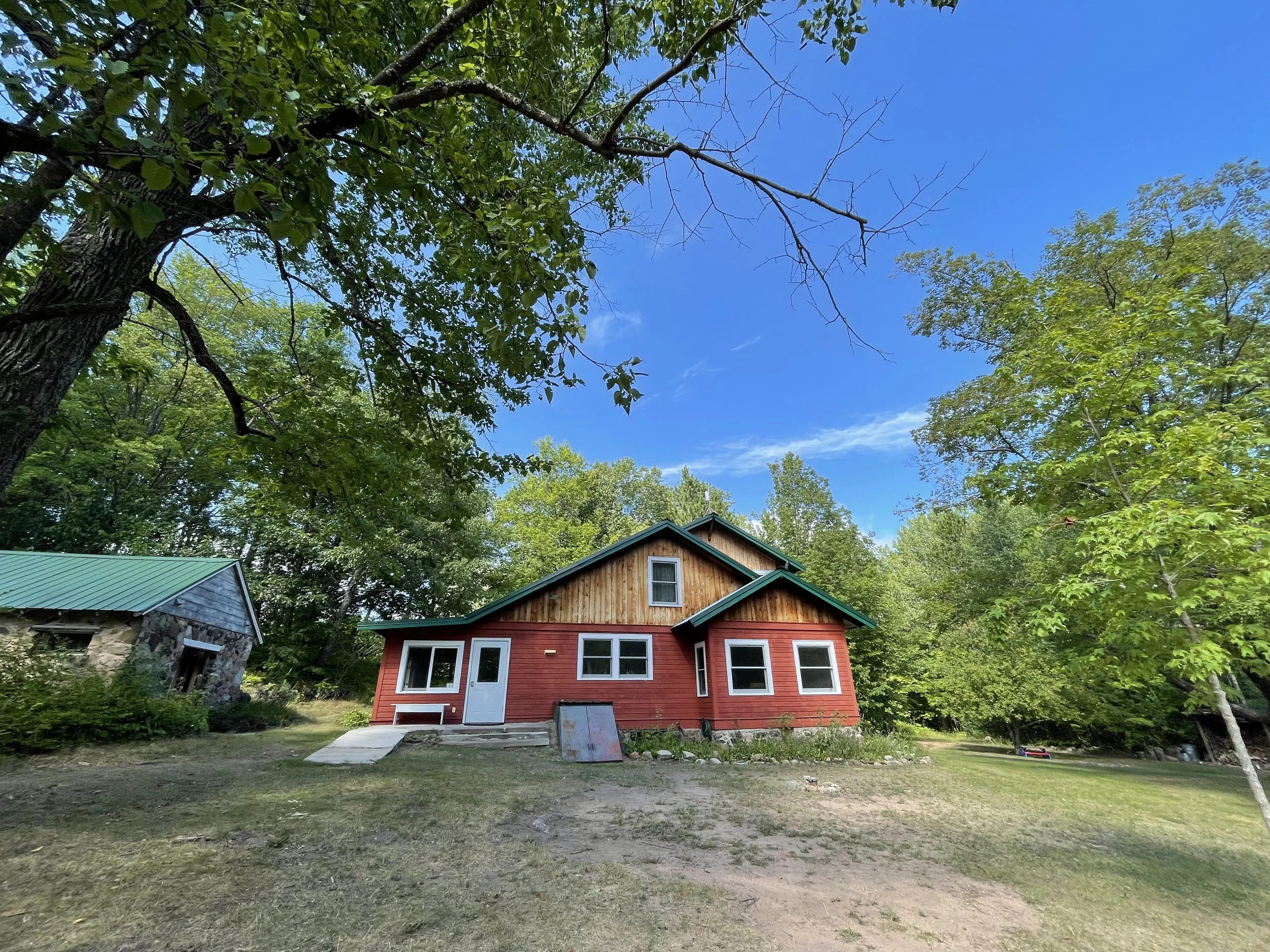
Where Nature Nurtures Growth
Beginnings
Potter’s Farm Retreat Center was established in 1991. Travel with us back in time, if you will, to honor all who have been here before us.
Most of the Farm acreage is woods, mixed northern hardwoods with scattered large white pine and two areas of tall “cathedral” Norway pines, grown up from pine plantations that succeeded Alden Potter's fields. A beautiful, open meadow overlooks Chequamegon Bay and visitors can enjoy a lovely groundwater fed pond dug for the early farm operations. The rest is cared for as ceremonial space (medicine wheels and the labyrinth).
The Anishinaabeg
The People who have graced this land are bountiful.
The Anishinaabe “True People” or “Original People” lived here prior to the immigrants who settled the land. The Anishinabe are a long-standing collective alliance of the Ojibwe, Potawatomi, and Ottawa. They started traveling from the east as early as 1500. Carrying on past eastern states, the Anishinabe explored the southern shores of Lake Superior, finding Manoomin (wild rice) or “the Food that Grows on Water.” Settling in this area and learning to subsist on seasonal resources, Ojibwe bands fished, hunted, gathered food (including wild rice) and tended gardens.”–Wisconsin State Historical Society
The Anishinaabe ceded most of their lands to the United States in 1837 and 1842 treaties, with express rights to be able to hunt and fish on those lands. In 1854, another treaty created four Ojibwe reservations in Wisconsin, two of which are nearby.
Today, the land of Potter’s Farm lies between the Red Cliff Band to our north and the Bad River Band to our east—both on the south shore of Lake Superior.
Alden and Greta
Potter’s Farm is named after Alden Potter (m. Greta C. Lagro, Oct. 1, 1933).
He was an Osteopath and farmer who grew fruits and vegetables to sell locally just as Washburn was establishing itself as a thriving logging town. Greta was a writer, college librarian, member of Duluth Writers’ Club and editor of the Wisconsin Club Woman. She wrote many poems about her time at Potter’s Farm.
All but one of the buildings at Potter’s Farm were built during the late American Craftsman Period from 1912 to 1920. They include a two-story frame farmhouse, a small cabin, a stone ice house, and an historical large stone barn.
The Seagraves family purchased the land in the 1940s and used it as a summer residence. In the 1980s, Bob and Diane Brander, who envisioned a retreat center, purchased the 46 acres of the land. Diane wrote a book about her journey, “Blind Walk to Potter’s Farm” sharing how she made this dream into a reality that lives on today!
In 2003 the 5-acre portion of the original farm property that included Alden Potter's summer home, later the Branders’ residence, and the old farm cookhouse, was sold to a private owner.
The Retreat Center
In 1991 the Branders converted the land, except the 5 acres where they resided, to a non-profit educational and retreat center known as Potter’s Farm, Inc. and the Board has since been managing the operations.
Today, Diane Brander’s dream lives on. Managed and maintained by an all volunteer Board of Directors, our non-profit retreat center is here to serve you. It’s time to let nature nurture you.
One Heart Circle
Around 1996, the Keepers of the Bundle of Teachings of the Delicate Lodge: RainbowHawk, WindEagle, and WhiteEagle Woman (who was an apprentice at the time) came with others from California to Potter’s Farm at the request of Diane Brander. After building a medicine wheel on the high meadow, the Keepers began holding trainings and ceremonies on this land. Over time, many of those who were participants, formed the One Heart Circle (OHC). This group of seekers began hosting ceremonies at Potter’s Farm to honor the turning of the seasons: Equinoxes and Solstices. In 2006, Bob Brander left the care and stewardship of Potter’s Farm, Inc. to the One Heart Circle, to be run by the Board. Current Board members have all completed Red Lodge Teachings of the Delicate Lodge. These particular teachings offer the Way of the Council—a balanced way to address complex issues, listening to the voices of all the people.




